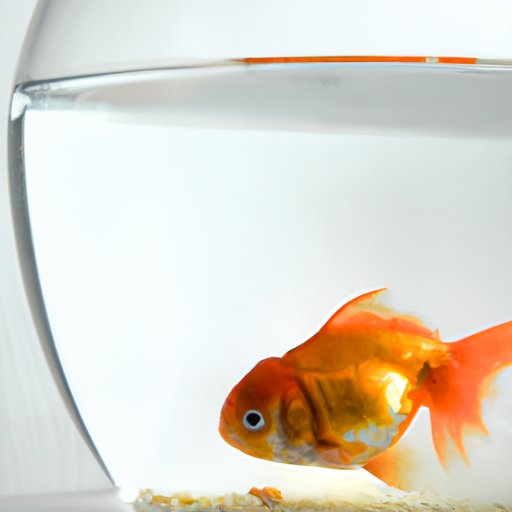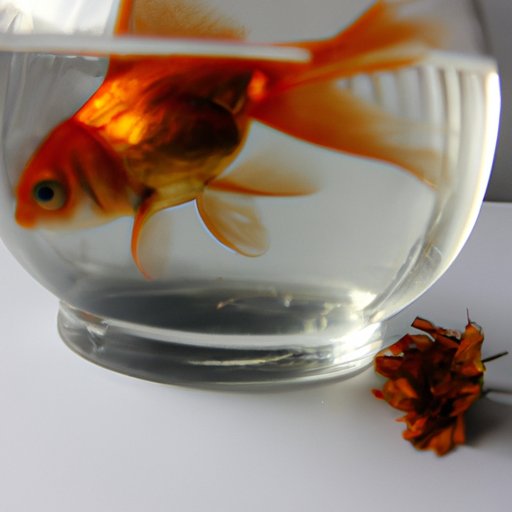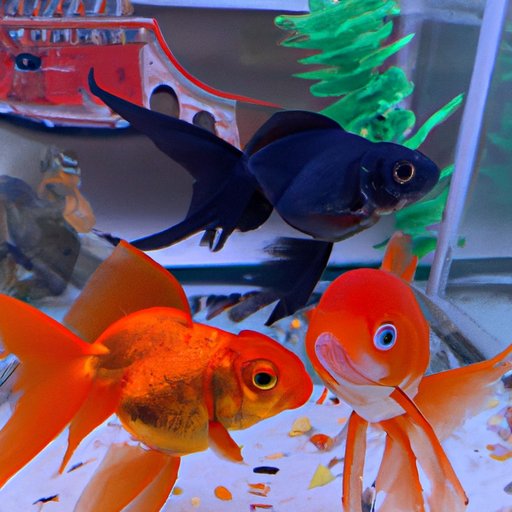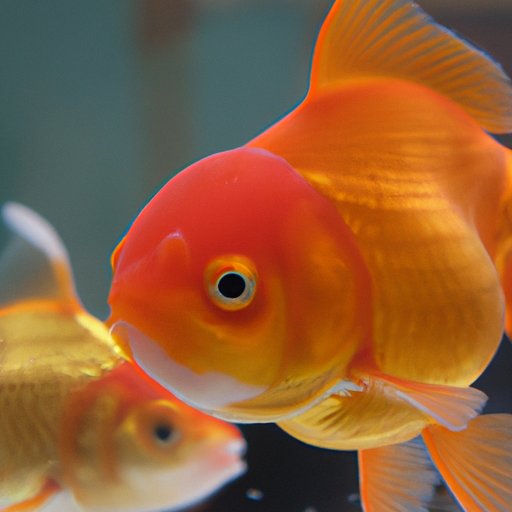Introduction
Goldfish are one of the most popular aquarium fish, beloved by both novice and experienced aquarists alike. These small, colorful fish have been kept as pets since ancient times and continue to be popular today. But what does it take to keep goldfish healthy? Let’s explore the dietary, environmental, and behavioral needs of these captivating fish.
Examining the Nutritional Benefits of Goldfish as Pets
Goldfish are omnivorous and consume a variety of foods. In the wild, they feed on aquatic plants, insects, and other small organisms. In captivity, they can be fed commercial flake or pellet food, freeze-dried treats, and live or frozen foods such as brine shrimp.
The nutritional value of goldfish food varies depending on the type and brand. Generally, commercial foods contain a mix of proteins, carbohydrates, vitamins, minerals, and fats that provide the essential nutrients goldfish need to stay healthy. It’s important to choose a high-quality food that is nutritionally balanced and contains no artificial flavors or colors.

Exploring Common Health Issues of Goldfish
Disease and parasites are two of the main health issues that affect goldfish. Poor water quality and overcrowding are two common causes of disease. Stress can also weaken a goldfish’s immune system, making it more vulnerable to illness. Regular water changes and careful monitoring of water parameters can help keep goldfish healthy.
Parasites can also affect goldfish health. Common parasites include flukes, anchor worms, and ich. If you suspect your goldfish has a parasite, consult with your local veterinarian or fish store for treatment options.
Investigating the Impact of Tank Size on Goldfish Health
Goldfish require a minimum tank size of 10 gallons per fish. Smaller tanks will cause stress and can lead to health problems, poor water quality, and even death. It’s important to ensure the tank is large enough to accommodate the number of goldfish you plan to keep.
If you’re looking for an alternative to a traditional aquarium, consider keeping goldfish in a pond. Ponds provide a larger environment where goldfish can swim freely and have plenty of room to grow. However, ponds require more maintenance than aquariums and can be more difficult to manage.
A Look at the Proper Care Requirements for Goldfish
Water quality is one of the most important factors when it comes to goldfish health. The water should be tested regularly to make sure ammonia, nitrite, and nitrate levels are within acceptable ranges. Ammonia and nitrite levels should be 0 ppm and nitrate levels should not exceed 20 ppm.
Cleaning the tank is another critical component of goldfish care. Remove uneaten food, debris, and algae weekly to keep the tank clean. Replace 25% of the water every week to maintain good water quality.
Maintaining the right temperature is also important. Goldfish prefer temperatures between 68-72°F. If the water gets too cold, the goldfish may become sluggish or even die.

Understanding the Lifespan of Goldfish
Goldfish have an average lifespan of 10-15 years when cared for properly. Factors such as diet, water quality, and tank size all play a role in determining how long a goldfish will live. With the proper care, some goldfish can even live up to 20 years.

Comparing Goldfish to Other Types of Aquarium Fish
Goldfish have different dietary and care requirements than other types of aquarium fish. While many fish need to be fed small amounts throughout the day, goldfish can be fed once or twice a day. Goldfish also require larger tanks and more frequent water changes than many other types of fish.
Conclusion
Goldfish can make wonderful pets when provided with the right care and environment. With proper nutrition, a large tank, and regular water changes, goldfish can live up to 10-20 years. It’s important to understand the specific needs of goldfish and make sure they are met in order to ensure a healthy life for your pet.
(Note: Is this article not meeting your expectations? Do you have knowledge or insights to share? Unlock new opportunities and expand your reach by joining our authors team. Click Registration to join us and share your expertise with our readers.)
